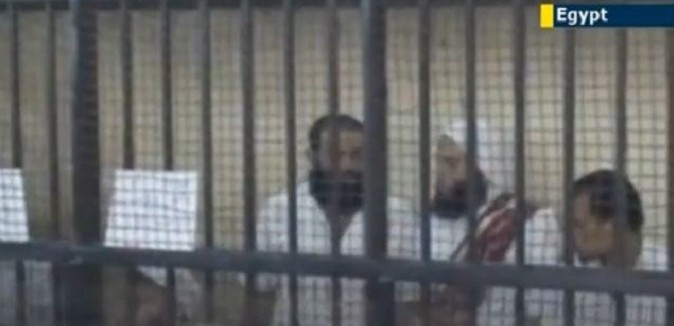Seven Egyptian security personnel abducted last week in the Sinai Peninsula have been freed after the Egyptian military dispatched heavy armor and war planes to the territory. A spokesman for Egypt’s Muslim Brotherhood-linked president Mohammed Morsi declared that the release of the kidnapped personnel would not stop the government’s military crackdown.
The kidnapped soldiers had been held by jihadists who were demanding that Cairo release Islamists linked to terror activity in the Peninsula. Jihadist organizations issued a statement blaming the Egyptian government and “Zionists” for the crisis. The organization also blamed the government for failing to address grievances and for torturing the prisoners they demanded be released.
Egyptian army officials, meanwhile, emphasized Hamas’s responsibility for the attack. Security forces blame the Iran-backed terror group for maintaining the tummes that facilitate the transfer material and personnel by terror groups that operate in the Sinai.
In response Egypt had shut down the Rafah crossing between the Sinai and the Hamas-controlled Gaza Strip. Cairo only reopened the crossing after the soldiers were released, allowing some 7,000 Palestinians waiting on both sides of the border to enter and exit.
The Egyptian security measures track closely with Israeli responses to Hamas terrorism. Jerusalem also routinely closes border crossings in order to stabilize security crises (though in contrast to the Egyptians, the Israelis routinely also take measures to ensure that imports and exports continue passing into Gaza, even during times of conflict). The Turks did the same today after a border bombing:
Turkey has shut its side of the last border crossing with Syria still controlled by President Bashar al-Assad’s government, stepping up security following two deadly bombings this month. Fifty-one people were killed when twin car bombs ripped through the Turkish border town of Reyhanli in the southern province of Hatay on May 11, heightening fears that Syria’s civil war was dragging in neighboring states. Turkey has accused Syria of involvement in the attacks. Damascus has denied any role.
Human rights groups and activists have often criticized these measures when undertaken by Israel in the aftermath of Hamas attacks.
[Photo: JewishNewsOne / Youtube]




